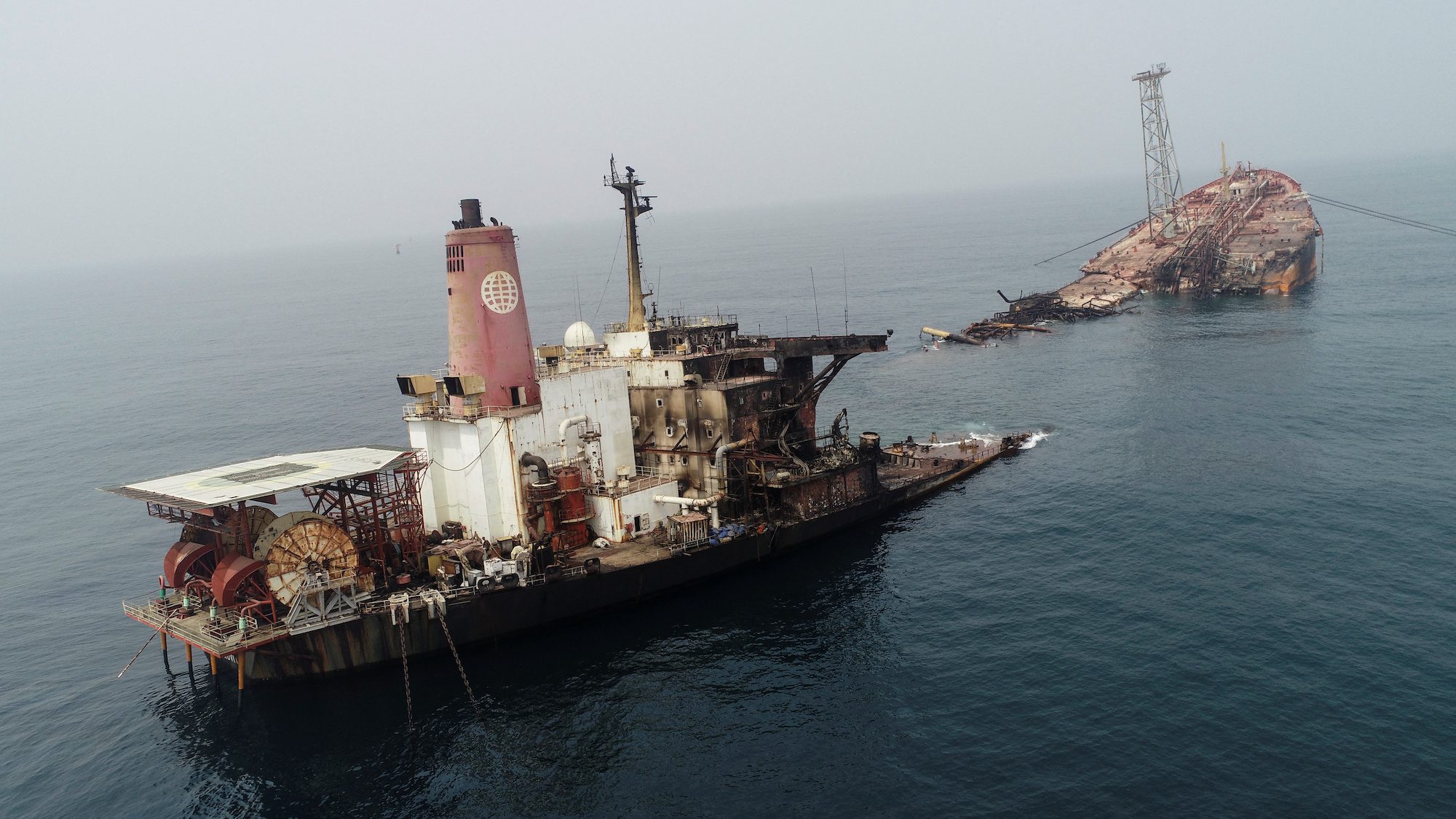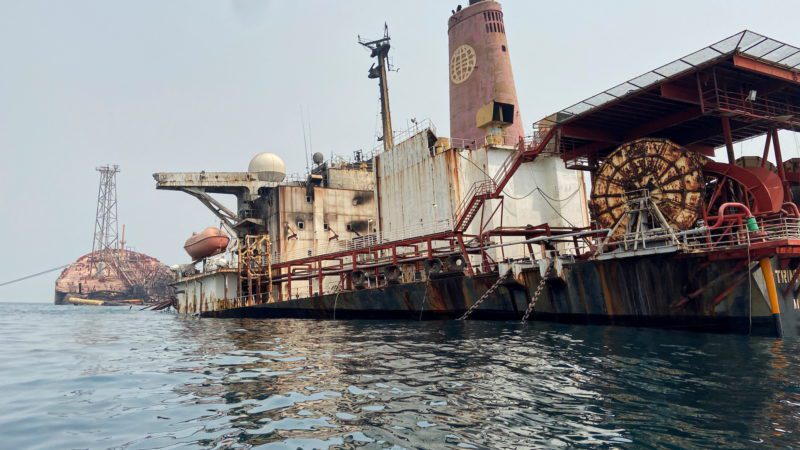
Wreckage of the Trinity Spirit floating production, storage and offloading (FPSO) vessel is seen after an explosion and fire broke out at Shebah Exploration & Production Company Ltd (SEPCOL) offshore production facility on Wednesday, in Warri, Nigeria February 4, 2022. Picture taken with a drone. REUTERS/Tife Owolabi
By Tife Owolabi and Julia Payne
WARRI, Nigeria/LONDON, Feb 4 (Reuters) –
An oil vessel used for storage that exploded off the coast of Nigeria this week had not been maintained for sometime and had technical issues, two sources and an environmental group said on Friday, as its wreckage lay in the sea after the fire was put out.
The 10 crew members who were on board at the time of explosion early on Wednesday remained unaccounted for, according to witnesses, amid fears they may have been caught in the fire.
A Reuters witness saw the burnt out remains of the Trinity Spirit floating production, storage and offloading (FPSO) vessel, which broke into two and partially submerged but there was no evidence of spilled crude.
It was not immediately clear who had put out the fire but vessel owner Shebah Exploration & Production Company Ltd said on Thursday it had received help from surrounding communities and Chevron Corp, which has a facility nearby.
Nnimmo Bassey, from Health of Mother Foundation, which tracks oil spills in Nigeria said the vessel, which has been in operation for more than 30 years, had outlived its lifespan of 20 years, should have been decommissioned and was not supposed to carry any crude.
The owner of the vessel was not available for comment.

An industry source with knowledge of operations of the Trinity Spirit FPSO said until five years ago, other companies, including large oil traders stored their crude on the vessel, which had capacity to produce 22,000 barrels per day and could store 2 million barrels
A trading source who used to occasionally store oil on the vessel but stopped because of “too many technical issues. Old and badly maintained.”
The industry source added that there could have been problems with the vessel’s boilers and that it kept no more than 20,000 barrels of crude.
“Most, if not all of the big trading companies stopped using it several years ago,” the source told Reuters.
A team of government investigators who were set to tour the site of the incident on Friday would now travel on Saturday, officials said.
Eric Omare, executive director of Niger Delta Good Governance and Environmental Initiative said high tidal waves could have washed away the oil and that the full impact would be felt soon.
“This is a high tidal area and so it moves onshore and go offshore very fast. So by now the surrounding communities from Escravos and Forcados would have been feeling the impact of what has happened,” Omare said. (Writing by MacDonald Dzirutwe, Editing by Marguerita Choy)
(c) Copyright Thomson Reuters 2022.
gcaptain.com
Δεν υπάρχουν σχόλια:
Δημοσίευση σχολίου